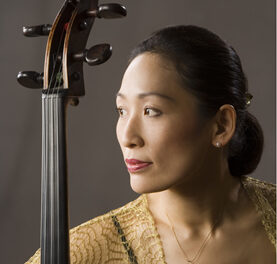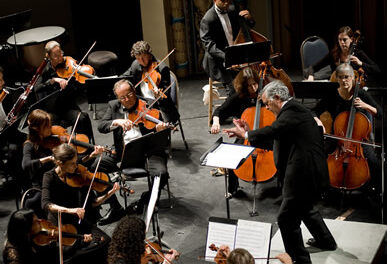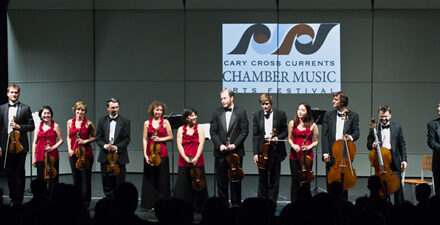Since it is called the Baptism of our Lord, Sunday, Jan. 13 (as observed in 2019), is sort of the last gasp of Christmas. Thus it was not at all out of line for the estimable Hillyer Community Chorus to offer its holiday concert program then, inasmuch as it had been postponed from Dec. 9 – which, come to think of it, was part of the Advent season and not yet Christmastime anyway. The program was attractive, for it included two lovely and rarely-heard works by important composers. Their inclusion maintained the sterling reputation for innovation that has long formed part of Hillyer’s raison d’être – for years, under former director Paul Conway, the semi-annual presentations at this church were bright spots on the regional cultural calendar because the musical offerings (invariably described in detail in program notes printed on green paper) were virtually never heard anywhere else. It is therefore good to be able to report that incumbent conductor Bill Rashleigh, Hillyer’s director of music, is maintaining this notable programming tradition – although it may be worth stating that the printed programs are now blue.
So on a cold Sunday afternoon with a significant damp chill in the air the 45 or so singers and 15 instrumentalists gathered before a smallish crowd at Hillyer Memorial Christian Church to perform some seasonal fare and those two aforementioned works – a short but attractive Magnificat, the song of Mary (here capped with a Gloria patri), set by J.S. Bach’s rebellious son, Johann Christian – whose conversion to Catholicism must have astounded his old pappy. It’s a nice work and a rare one, too. As Rashleigh explained, there’s not a lot of music by JCB that has come down to us. The scoring is perhaps traditional – it involves four soloists, chorus, and orchestra, with the text skillfully allocated here and there to help sustain interest on the part of the listeners. The guests – soprano Kathleen Jasinskas, mezzo Jennifer Myers, tenor Brett Pardue, and baritone William Adams – sang well, both individually, together, and with the chorus. The chorus was rather severely imbalanced, with twice as many women as men (a challenge not unique to Hillyer), but the overall impression was favorable. The diction was generally quite good – yes, texts and translations for the two sacred pieces were provided, but they were in fact rarely needed. So overall the Bach was a success, and almost everything about it appealed.
The other rare piece was Schubert’s Mass in C, D.452. This is actually a missa brevis, lightly scored (no violas), and as the notes suggested quite airy in texture. Schubert wrote a great raft of liturgical music, most of which is never performed, so this Mass No. 4 was a welcome addition to the area musical scene.* The soloists were the same, and the performance had a lot going for it, despite some ongoing choral imbalances and some issues with the upper strings. This youthful (1816, publ. 1825**) six-part mass was meant for use in church, and it sounds a lot like Mozart. The soprano’s part is larger than the other soloists’, since it was written for the composer’s first important girlfriend, Therese Grob. Jasinskas realized the lines well, albeit sometimes somewhat piercingly. Again, gratitude for this opportunity to hear a lovely and fascinating piece went a long way toward inspiring the grateful applause the performance elicited.
The other works on the program probably wouldn’t have been done if the planners had known that weather would have pushed it into the New Year. Those were Pepper Choplin’s “The Coming of the Lord,” actually a medley of Christmas tunes, handsomely welded together; Heather Sorenson’s “Christmas Dreams,” quite touching in its sentiment and inward reflections; Gary Hallquist’s “A Joyful Song,” which lived up to its title; and the altogether admirable finale, Joseph M Martin’s “Until We Sing Again.” Rashleigh led all these and the major works, too, with deft skill, exuding sensitivity to his singers.
The chorus takes up Mozart’s Requiem on May 19. Folks who might wish to sing it at Hillyer should check the website.
*There are recordings of Schubert’s complete surviving sacred works, one of which is more complete than some of the others – see Wolfgang Sawallisch’s 7-CD set for that edition (but don’t sit down and play the whole thing at once – these are for savoring in small doses).
**There is an alternate (published) version of the Benedictus intended for use (as the publisher Diabelli noted) “in default of a good soprano singer” – in other words, absent an artist of Grob’s capability!













